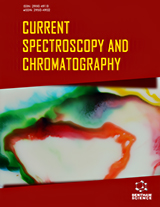Abstract
We treat in this review the general problem of relaxation during an adiabatic radiofrequency pulses. In most of the applications literature in Nuclear Magnetic Resonance (NMR) the relaxation during a radio-frequency pulse has either been neglected or avoided using the so-called “delta function approximation” where relaxation during the short time of the pulse is small, when the relaxations during the pulses can be ignored. There has developed within the NMR research community the study and use of pulses on the order of many milliseconds where there is an explicit time-dependence in the first rotating frame (FRF). The result of these developments is that the time-dependence of relaxation during the radiofrequency pulse becomes important for the successful analysis of NMR data. In this review we detail some of the theoretical concepts for treating NMR relaxation that we have found necessary in developing the successful fitting to data of NMR experiments where the time dependence results from the use of adiabatic pulses. We explicitly treat the case of identical spins 1/2, then the situation of two distinct spins 1/2 both for the case of the dipolar relaxation mechanism and for two site chemical exchange.
Keywords: Time dependence of the relaxations




























